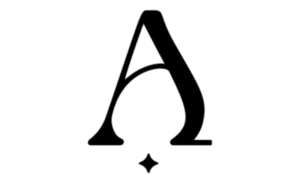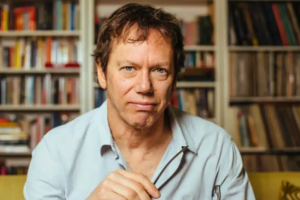Өйёу: Exploring Its Linguistic Depth and Cultural Importance
The word “Өйёу” carries a profound significance, bridging language and culture in a way that reflects shared histories and identities. Although seemingly simple, its meanings and implications are deeply layered, rooted in tradition, and enriched by its journey through time.
This exploration dives into the origins, applications, and ongoing relevance of “Өйёу,” showcasing how this unique term continues to resonate with communities worldwide.
Tracing the Historical Roots of Өйёу
The origins of “Өйёу” can be traced back to ancient Turkic languages, where it served as a cornerstone of communication and expression. Historically, it was more than just a word—it was a representation of social bonds, familial unity, and shared experiences within close-knit groups.
As centuries passed, the term evolved, adapting to the linguistic and cultural shifts of various regions. Historical texts and oral traditions reveal its presence in poetry, folklore, and communal narratives, each embedding new layers of emotional and cultural meaning. The variations of “Өйёу” seen in different dialects highlight its adaptability and the influence of regional customs on its interpretation.
Cultural Importance of Өйёу Across Communities
For many communities, “Өйёу” embodies a sense of belonging, hospitality, and shared humanity. It often represents the spirit of togetherness during familial gatherings or communal celebrations. In some traditions, the word is associated with welcoming others into one’s home or sharing a meal, emphasizing connection and warmth.
Beyond daily interactions, Өйёу also finds its place in the arts. Festivals, dances, and music dedicated to this concept celebrate the unifying values it stands for. Each cultural adaptation of the term reflects how deeply intertwined language and tradition are, offering a window into the values of diverse societies.
Linguistic Insights into Өйёу
From a linguistic perspective, “Өйёу” offers fascinating insights into the evolution of language. The term’s phonetic variations across regions reveal how pronunciation adapts to local speech patterns. This flexibility contributes to its continued relevance and use across different linguistic groups.
Translating “Өйёу” accurately can be challenging, as its meaning often extends beyond words to embody emotions and cultural nuances. Its dynamic usage in modern language highlights the adaptability of words to fit contemporary contexts while retaining their historical essence.
The Modern-Day Role of Өйёу
In today’s interconnected world, “Өйёу” remains a meaningful term, blending tradition with modernity. Social media platforms have become spaces where this word is celebrated, often used in hashtags or captions during cultural events and personal milestones. These digital expressions ensure that the term remains vibrant, connecting younger generations to their roots.
Educational programs focusing on indigenous languages have also embraced “Өйёу” as a key example of preserving linguistic heritage. Workshops, storytelling sessions, and art projects centered on this word foster appreciation for its cultural richness among students and educators alike.
Artists and creators have incorporated “Өйёу” into literature, music, and visual arts, offering new interpretations while paying homage to its traditional meanings. This creative resurgence ensures that the word continues to thrive and inspire.
The Broader Impact of Өйёу on Language and Culture
The influence of “Өйёу” extends beyond its linguistic boundaries, fostering a deeper appreciation for cultural heritage. In communities where the term is commonly used, it serves as a cornerstone for collective identity and mutual understanding.
As globalization progresses, the adaptability of “Өйёу” exemplifies how traditional concepts can integrate into modern linguistic landscapes. While preserving its essence, the term evolves to meet contemporary needs, demonstrating the resilience and dynamism of language.
The Future of Өйёу in a Global Context
The future of “Өйёу” lies in its ability to navigate the complexities of a globalized world. As urbanization and digitalization shape societies, this term has the potential to bridge traditional values with modern practices.
Online platforms will likely play a critical role in sustaining its relevance, offering opportunities for cultural exchange and dialogue. However, challenges such as the dominance of major global languages could pose risks to its preservation. Communities committed to safeguarding their linguistic heritage must actively promote and celebrate terms like “Өйёу.”
Efforts to balance modernization with cultural authenticity will define the trajectory of “Өйёу” in the years to come. By fostering awareness and appreciation, both locally and globally, the term can continue to symbolize unity, identity, and shared human experiences.
FAQs
What does “Өйёу” mean?
“Өйёу” is a term deeply rooted in culture and language, symbolizing concepts such as home, family, and connection across various traditions.
Where does “Өйёу” originate?
Its origins can be traced to the Turkic languages, where it initially emerged as an expression of familial ties and social bonds.
How is “Өйёу” relevant today?
In modern society, “Өйёу” is celebrated through digital media, education, and the arts, serving as a bridge between heritage and contemporary life.
Why is “Өйёу” culturally significant?
The term represents warmth, hospitality, and unity, making it central to many traditions and communal practices.
How does “Өйёу” influence language and culture?
“Өйёу” enriches language and culture by preserving historical meanings while adapting to new contexts, fostering connections across generations and communities.
Stay Updated with the Latest News and Insights at timelytribune








Post Comment